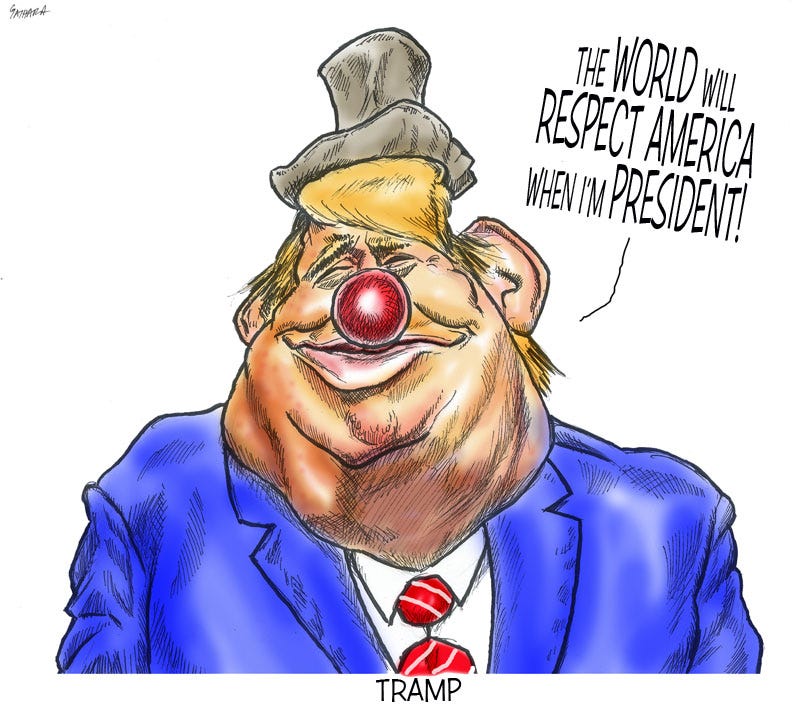Trump’s return is Africa's signal to move on
As the once and future president makes America grate again, the nations and institutions forging a new world order will simply pick up the pace
Patrick Gathara
Donald Trump has been re-elected president of the United States and to what is ostensibly the most powerful office on the planet. Not that you’d know the last part given how its current occupant, Joe Biden, has been carrying on over the past year of genocide in Gaza.
Still, it is a powerful office and the decisions Trump makes will affect people around the world. That includes those of us in what he once colourfully described as “shithole” countries. So what to make of the return of the muck?
When Trump left office in 2020, many around the world were glad to see the back of him after four years of unending chaos and uncertainty.
However, it could be argued that Africa was largely shielded from the worst aspects of the maelstrom simply by his singular disinterest in the continent, which largely left the administration’s policies in the hands of bureaucrats unwilling to rock the boat.
Except, that is, for things like stopping US funding going to organisations that help women make choices about their own bodies in the case of abortion.
Of course, we were also not immune from the global consequences of his corruption, arrogance, insecurity and incompetence – from gutting the global climate change pact to his coddling of dictators and human rights abusers.
Now that he’s back it is unlikely that any of that will change.
But has Biden truly been all that different?
Sure, he talked a good game when it came to things like democracy and international cooperation.
But he has been more than happy to buddy up with wannabe autocrats like Kenya’s William Ruto, to scuttle international law, and to stymie and threaten international institutions like the UN in the service of a genocidal apartheid entity in Israel.
A second Trump presidency is not necessarily a boon for the continent. It also does not necessarily spell more disaster either.
US policy towards the African continent will probably not change.
However, the international environment will certainly be in flux: if Trump’s first term positions are anything to go by, he may actually end up weakening some of the hegemonic institutions of the West and creating room for alternatives.
For example, fear could supercharge Brics moves to create an alternative international payment system, bypassing the Swift system. And even within Europe there is already informal talk of “de-dollarisation”.
Trump’s win will be far more consequential for the US than for the world.
Over the course of the next four years, if he is true to form (and there is little reason to believe he has learnt anything from his first term), the rest of the world will be working out how to function without its self-appointed “indispensable nation”. And by the time the Americans realise that the rest are moving on, it may be too late to stem the tide.
For Africa, that means we have an opportunity to not just imagine a post-American order, but to get serious about building the sort of world order we want to live in, rather than leaving that up to others.



Loved reading your perspective, thank you. All best from Europe to you! ~ Barbara
Refreshing -- enjoyed it.